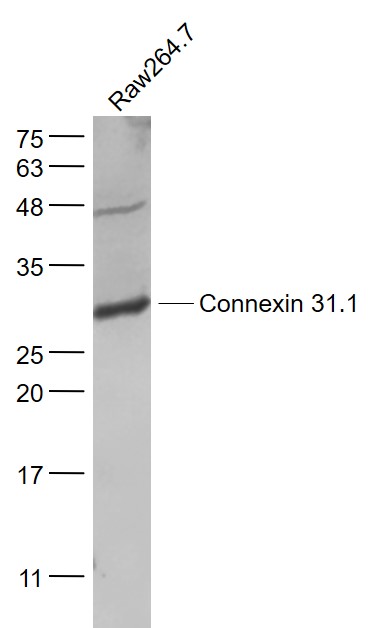sales@bioss.com.cn
techsupport@bioss.com.cn
400-901-9800
Host: Rabbit
Target Protein: Connexin 31.1 Rabbit pAb
IR: Immunogen Range:1-100/273
Clonality: Polyclonal
Isotype:
Entrez Gene: 2709
Swiss Prot: O95377
Source: KLH conjugated synthetic peptide derived from human Connexin 31.1:1-100/273
Purification: affinity purified by Protein A
Storage: 0.01M TBS (pH7.4) with 1% BSA, 0.02% Proclin300 and 50% Glycerol. Shipped at 4℃. Store at -20℃ for one year. Avoid repeated freeze/thaw cycles.
Background: The connexin family of proteins form hexameric complexes, called connexons, that facilitate movement of low molecular weight proteins between cells via gap junctions. Connexin proteins share a common topology of four transmembrane ?helical domains, two extracellular loops, a cytoplasmic loop and cytoplasmic N- and C-termini. Many of the key functional differences arise from specific amino acid substitutions in the most highly conserved domains; the transmembrane and extracellular regions. Connexin 31.1, Cx31.1 or Gap junction beta-5 protein, is a 271 amino acid protein that is predominantly expressed in skin with lower expression in testis. Expression of connexin 31.1 is required for normal placental development in mice. Down-regulation of the connexin 31.1 gene correlates with head and neck squamous cell carcinomas (HNSCC) and therefore it may be a potential therapeutic target.
Size: 50ul
Concentration: 1mg/ml
Applications: WB=1:500-2000
Cross Reactive Species: Mouse (predicted: Human,Rat,Rabbit,Sheep,Cow,Dog,Horse)
For research use only. Not intended for diagnostic or therapeutic use.
